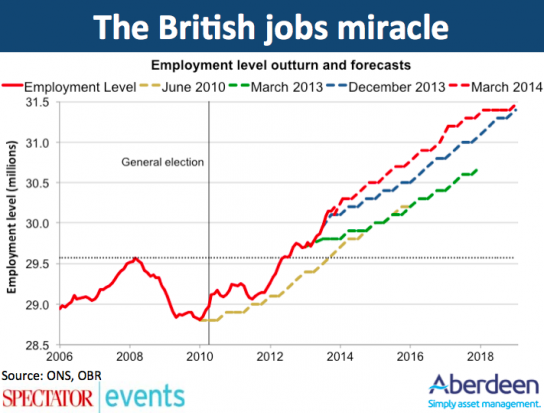I’ve written many times about America’s looming fiscal collapse, and I’ve also pontificated about America’s costly and failed welfare state.
I even have speculated about when America reaches a tipping point, with too many people riding in the wagon of government dependency (as illustrated bythese famous cartoons, which even have a Danish equivalent).
If you read all my posts on these issues, I like to think you’d be very well informed on these topics. But if you want to save time, my colleague Tom Palmer put all these issues together in a recent speech in Australia.
Best of all, he includes lots of great material on the moral and historical aspects of this discussion.
The good news is that there are signs of progress, at least outside the United States. Denmark, for instance, has cut back on its welfare state.
And now, even the United Kingdom has engaged in some serious welfare reform.
Here are some excerpts from a column in the UK-based Telegraph.
Why should there have been this improvement in the labour market? …The most convincing explanation is surely the Government’s welfare reforms. They have made it more difficult and less attractive to live off benefits, thereby increasing the supply of workers. In economists’ jargon, the natural rate of unemployment has fallen.
Another Telegraph column digs into the details.
…more jobs are being created in Britain than in the rest of Europe put together. …There has clearly been a game-changer… What confounded the eggheads was that the number of workers is growing four times faster than the number of working-age people: in other words, Britons have become far more likely than pretty much anyone else to look for –and find – work. Why?
The answer is simple economics and incentives.
Fewer people now claim the three main out-of-work benefits than at any time during the Labour years. This, of course, is perfectly explained by IDS’s reforms, which make it a lot harder to live on welfare. Those who have been on incapacity benefit for years have been summoned to assessment centres to see what work they’re fit to do. Far more of the unemployed are being penalised for missing job interviews. A benefits cap has been imposed; housing benefit is being reformed; and the so-called “spare room subsidy” has been abolished, making life more expensive for those on benefits with unused rooms. …this is not about punishing “shirkers”, but helping good people trapped in a bad system. Fixing that system means making life harder for people who have it pretty tough already, at least for a short while. But under the Labour regime, such people were being led down the path to dependency and poverty. A new road had to be built, leading to work. And only now is it becoming clear quite how many people are taking it.
Here’s a chart showing how actual job creation is beating the forecasts.

These are remarkable numbers, particularly when you compare them to the job forecast put forth by the Obama White House, which grossly over-stated the number of jobs that would exist under the so-called stimulus.
The key takeaway is that incentives matter. When you give people unemployment insurance, you reduce incentives to find work. When you give people Obamacare, you reduce incentives to earn income. When you give people welfare and food stamps, you reduce incentives for self-reliance.
And when you add together the panoply of redistribution programs operated by government, it’s easy to see why far too many people are being trapped in government dependency.
If you like charts, here’s a very sobering image of how the welfare state destroys incentives for upward mobility. And if you like anecdotes, here’s a dismal story about government making leisure more attractive than productivity.
